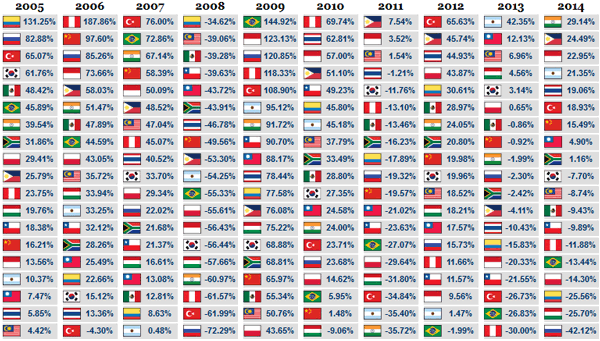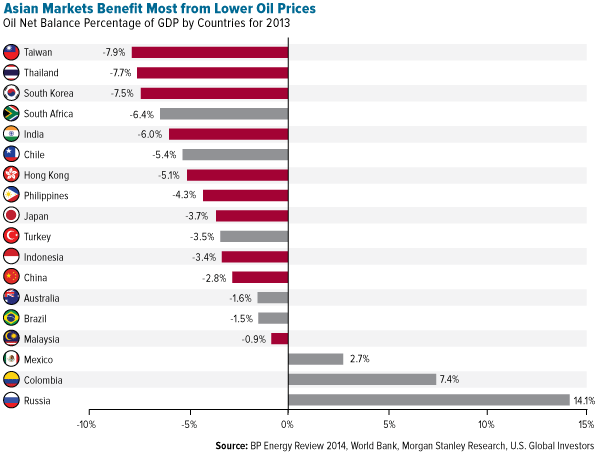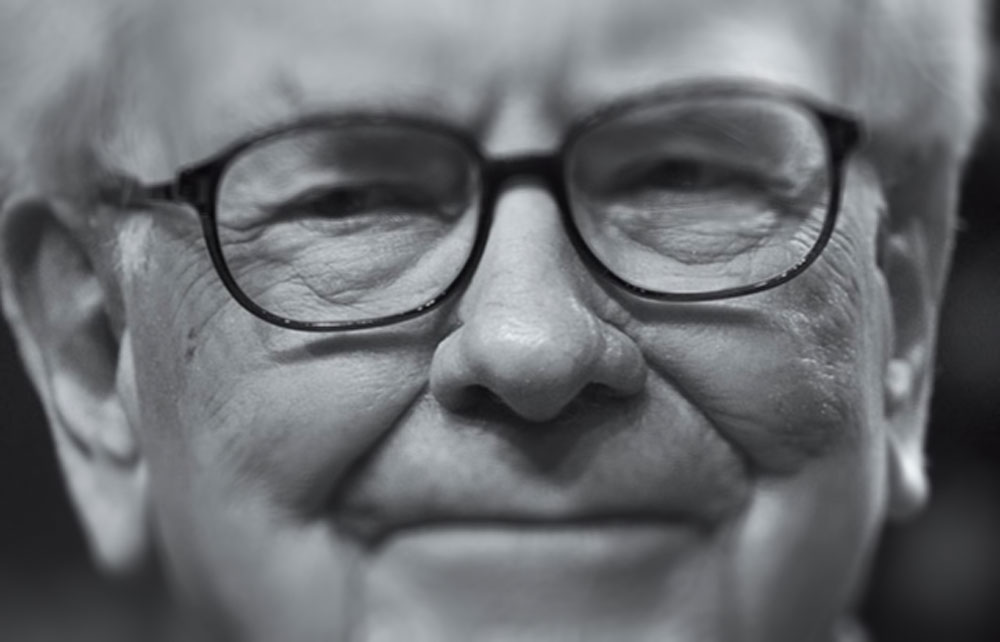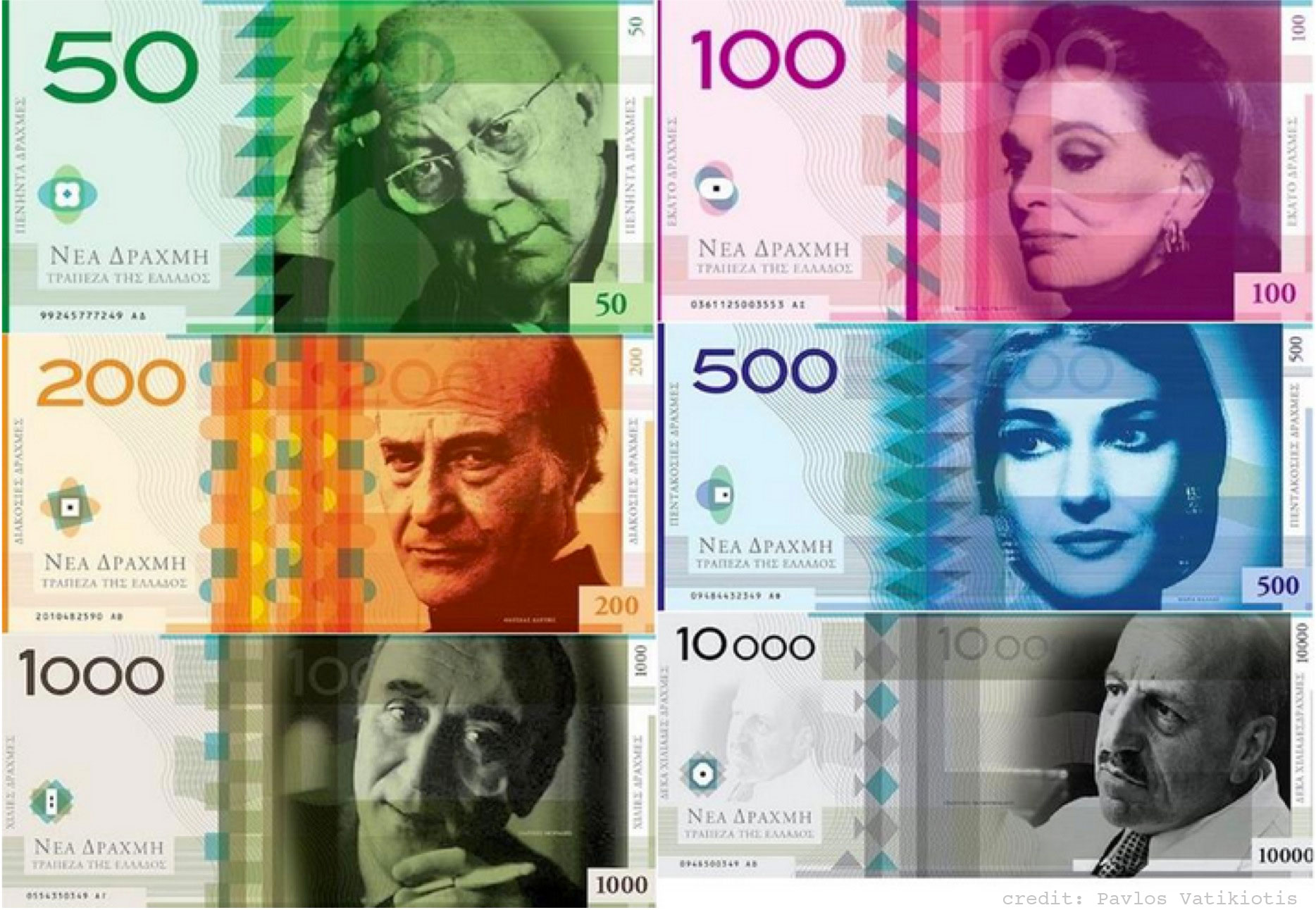India the Best-Performing Emerging Market
March 3, 2015
by Frank Holmes, US Global Investors

India had an incredible banner year. The world’s largest democracy, home to 1.25 billion people, was the best-performing emerging market in 2014, delivering over 29 percent. It was followed by the Philippines in second place and Indonesia in third.
This continues India’s story as an increasingly attractive market for global investors, a story which became even more pronounced with the May election of Prime Minister Narendra Modi, whom CLSA’s Asian market strategist Chris Wood has called “the most pro-business, pro-investment political leader in the world today.”
You can see how other emerging markets ranked in our Periodic Table of Emerging Markets, now available in its interactive version.

click to view the interactive periodic table
Last year we saw a strong bifurcation between emerging markets in Asia and those in Eastern Europe and South America. Asian countries led the pack largely because they tend to be net importers of oil, and as such it came as a huge windfall for them when prices began to head off the cliff in the back half of the year.
Brent oil prices now stand just above $61 per barrel, down from $110 per barrel in July.
The following chart, last shared in October, shows which countries profit and which stumble when oil prices decline, based on 2013 data. With few exceptions, the results look similar to the periodic table: Asian countries on top, South American (and Russia) on bottom.
It should come as no surprise that Russia—weighed down not only by falling oil prices but also geopolitical turmoil, international sanctions and a shrinking currency—fell to last place in 2014. But since then we’ve seen the federation’s market turn up, and we’ve begun the process of gaining limited exposure to Russian equities.
“The situation is Ukraine is not pretty, but global investors understand it and are getting comfortable putting their money in Russia again because it’s inexpensive,” John Derrick, portfolio manager of our Emerging Europe Fund (EUROX), said during our recent webcast.
“The bad news has been priced in, and it looks as if the market is willing to move higher.”
Colombia had its second consecutive down year as a result of low oil prices and socialist-type policies—heavy punitive taxation and redistribution of wealth—that have led to an anti-business environment.
Hungary tumbled pretty sharply because of its government’s siding with Russia on several issues. It’s moved much closer to the federation than the rest of Europe and staunchly opposes the international sanctions.
As for India, it continues to impress. Year-to-date, the S&P BSE SENSEX has returned over 6 percent, compared to the S&P 500 Index’s 2.3 percent.
You can read more about India in the digital version of our newly-released Shareholder Report.
Please consider carefully a fund’s investment objectives, risks, charges and expenses. For this and other important information, obtain a fund prospectus by visiting www.usfunds.com or by calling 1-800-US-FUNDS (1-800-873-8637). Read it carefully before investing. Distributed by U.S. Global Brokerage, Inc.
Past performance does not guarantee future results.
Foreign and emerging market investing involves special risks such as currency fluctuation and less public disclosure, as well as economic and political risk. By investing in a specific geographic region, a regional fund’s returns and share price may be more volatile than those of a less concentrated portfolio. The Emerging Europe Fund invests more than 25% of its investments in companies principally engaged in the oil & gas or banking industries. The risk of concentrating investments in this group of industries will make the fund more susceptible to risk in these industries than funds which do not concentrate their investments in an industry and may make the fund’s performance more volatile.
The S&P BSE SENSEX Index is a free-float market-weighted stock market index of 30 well-established and financially sound companies listed on the Bombay Stock Exchange.
The S&P 500 Stock Index is a widely recognized capitalization-weighted index of 500 common stock prices in U.S. companies.
All opinions expressed and data provided are subject to change without notice. Some of these opinions may not be appropriate to every investor.
Copyright © US Global Investors













